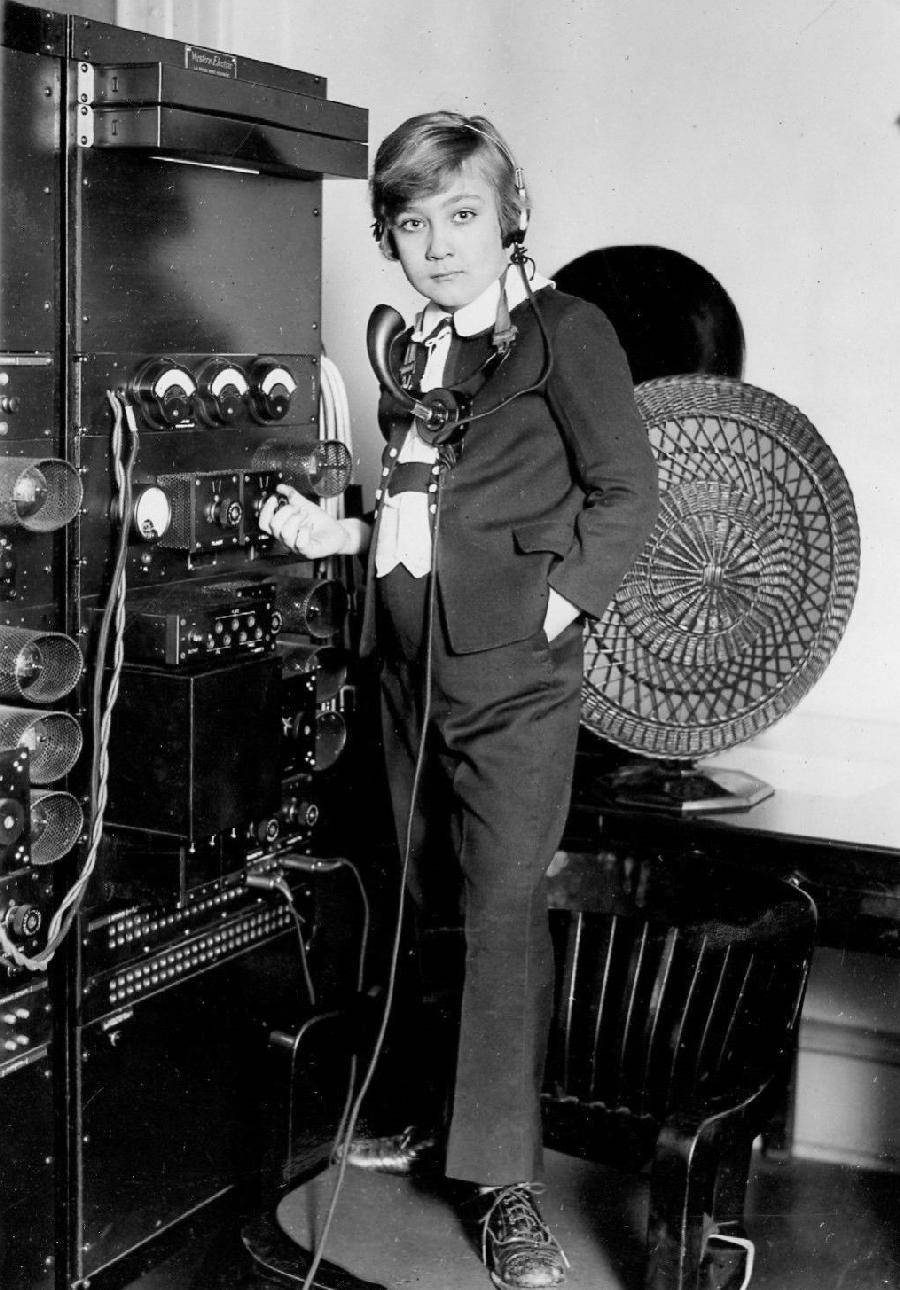
American Elections: Commuications--Radio

Figure 1.--The caption of this 1925 press photo read, "Boy interviewer of President Coolidge inspecting radio station that brodcasted the inaguration: Naster Jack Grattan, of N.Y., age 10 years, was the first child to receive the honor of a private audience with President Coolidge since his inaguration. Jack is considered a really handsome chap abd that he is alert is evidenced by the fact that he listened to every world of thePrsident's speech over the radio, in order that he would know what to talk about with the President when he met him." Jack is looking over the amplifying aparatus of radio station WCAP, station that handled theradio end of the inaguration.
k
|
|
Radio began to reshape America after World War I. Commerrcial radio began to develop after the Waer with huge consequences for the economy and popular culture. Unlike the debelopment of radio in Europe, the Government played a minor role. And politics was one of the many aspects of american life that was affected. This began in a very minor way in 1920. Radio station KDKA in Pittsburgh, Pennsylvania, announced that Harding was the official winner of the 1920 election (November 1920). It was the first time that election returns were broadcast live. The new president was very interested in technology, perhaps because of his newspaper background. Harding recored a speech on an early 'phonograph' that recorded and played back sound on wax discs. Harding became the first president to atually own a radio and have one installed in the White House. There wasn't nuch to listen to at the time, but this very rapidly changed. President Harding addressing a crowd at the dedication of a memorial for Francis Scott Key, the composer of the 'Star Spangled Banner' and the event was broacast on radio, the first presidential speed to be broadcast (1922). The next major step was taken by President Coolidge. It was a huge step for the American presidency fundamentally changed with how presidents communicated with the American public. Previously a president could only address a small group or have his words convyed by the press. With radio a president could address the ebtire county without any filtering by the press. President Collidge was the first president to have his innagural address broadcast (1925). He was the first president to deliver a radio address and not an address simply carried by radio. President Hoover experienced a very different situation. By the time he was elected (1928), radio wasalready a major commercial activity. But Presidebt Hoover did not have a voice that conveyed well over radio. His sucessor President Roosevelt had a suited for radio and his radio addrsses called fire side chats would become a major part of hos presidency (193). Inthe same year President Roosevelt was inngurated, annother master of the medium seized power--Adolf Hitler. After President Roosevelt, the radio era ended and television began.
CIH

Navigate the Children in History Website:
[Return to the Main U.S. elections page]
[Return to the Main 1920 election page]
[Return to the Main 1924 election page]
[Return to the Main 1928 election page]
[Return to the Main 1932 election page]
[Return to the Main U.S. radio page]
[Return to the Main U.S. political party page]
[Return to the Main U.S. history page]
[Introduction]
[Biographies]
[Chronology]
[Climatology]
[Clothing]
[Disease and Health]
[Economics]
[Geography]
[History]
[Human Nature]
[Law]
[Nationalism]
[Presidents]
[Religion]
[Royalty]
[Science]
[Social Class]
[Bibliographies]
[Contributions]
[FAQs]
[Glossaries]
[Images]
[Links]
[Registration]
[Tools]
[Children in History Home]
Created: 2:53 AM 7/31/2014
Last updated: 2:53 AM 7/31/2014



